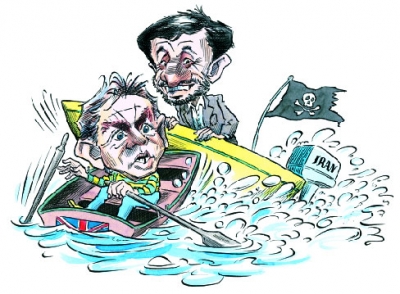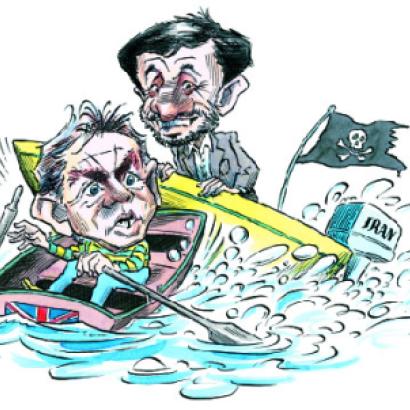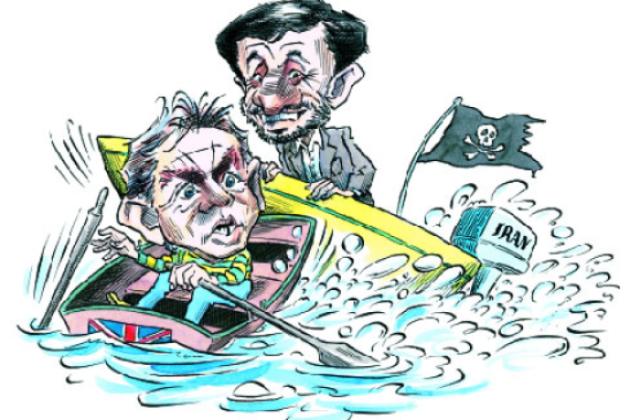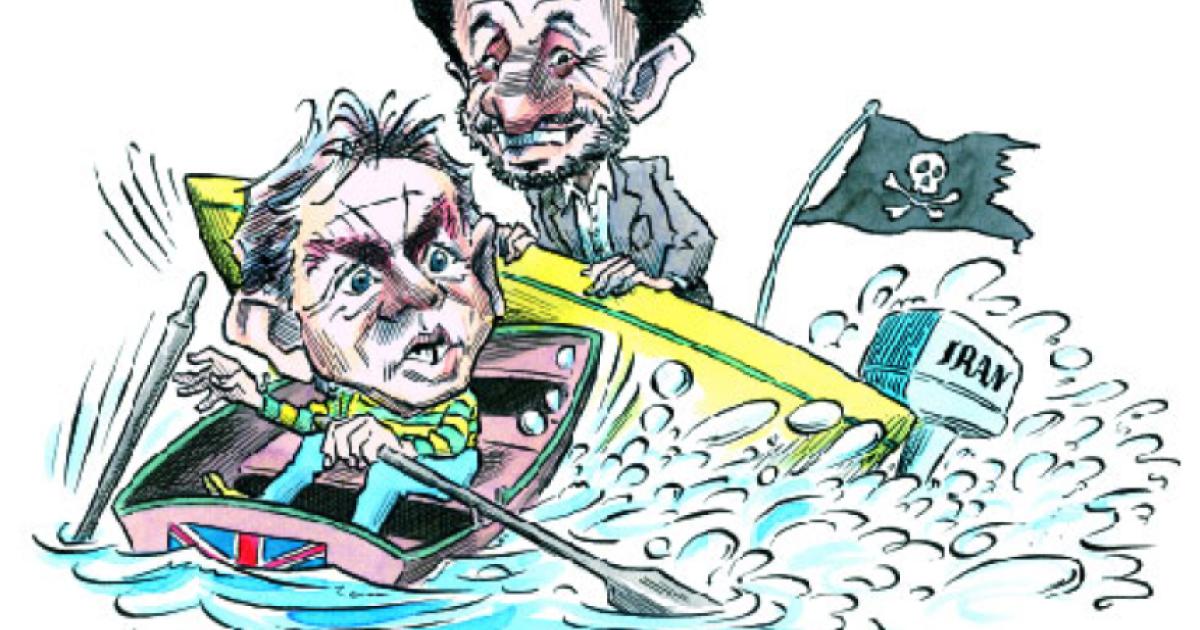- International Affairs
- US Foreign Policy
- Security & Defense
- US Defense
Let that be a lesson. Even before Britain’s politicians had finished saying sorry for depriving millions of their liberty—the occasion being March’s 200th anniversary of the abolition of the slave trade—15 Britons found themselves deprived of their liberty by the Iranian government. When will Tony Blair ever learn that, in international relations, nice guys finish last?
This is indeed what comes of being too nice. A month before expressing his “deep sorrow and regret for our nation’s role in the slave trade,” the prime minister had announced his intention to reduce British troop levels in Iraq by 1,600 within a matter of months. “The next chapter in Basra’s history,” he declared, “can be written by Iraqis.” Unfortunately, it looks more likely to be written by Iranians. And somehow I don’t think they’ll be saying sorry afterward.
Until the Shatt al-Arab crisis, Iran had been on the diplomatic rack. The United Nations Security Council had imposed new sanctions to punish the regime in Tehran for continuing with its nuclear program. This reflected growing impatience, even on the part of hitherto indulgent Russia, with the Iranians’ persistent defiance. But Mahmoud Ahmadinejad, the Iranian president, is never to be underestimated. To regain the diplomatic initiative, he targeted the weakest link on the Security Council, which turned out to be Britain.
There is no serious doubt in my mind that the Britons taken prisoner on March 23 were in Iraqi rather than Iranian waters. The Iranians themselves initially (and inadvertently) admitted as much. But whether through bad luck or negligence, 14 British men and one British woman found themselves for a time in Ahmadinejad’s clutches. Suddenly, the most the Security Council seemed able to do—despite the fact that the captives were on a U.N.-mandated mission—was to express “grave concern.”
Delighted by their coup, Ahmadinejad and his lackeys amused themselves by forcing Leading Seaman Faye Turney to sign bogus letters dictated to her in Borat-ese: The Iranian people “have brought me no harm, but have looked after me well. . . . Even through our wrongdoing, they have still treated us well and humanely, which I am and always will be eternally grateful. . . . Isn’t it time for us to start withdrawing our forces from Iraq and let them determine their own future?”
We have been here before. Englishwomen in bondage play a central role in Linda Colley’s masterpiece, Captives: Britain, Empire, and the World, 1600–1850. As Colley points out, it was not only Africans who were enslaved in the seventeenth and eighteenth centuries. Tens of thousands of Britons shared their fate if they fell into the hands of the so-called Barbary corsairs, the Moroccan and Algerian raiders who infested the western Mediterranean. The Faye Turney of 1756 was Elizabeth Marsh, seized off the Moroccan coast and subjected, by her own account, to the amorous attentions of the future sultan Sidi Muhammad. (Incidentally, when is the king of Morocco going to apologize for this?)

In those days, there was little hope of rescue. Britain’s armed forces were far too thinly stretched over its rapidly expanding empire for Rambo-style missions to liberate scattered slaves and POWs. The most the Barbary slaves could hope for was to be ransomed, to which end collections were regularly made in British churches.
It is in this light that we need to understand James Thomson’s immortal lines: “Rule, Britannia! Britannia, rule the waves: Britons never shall be slaves.” When first set to music in 1740, this was a forward-looking injunction to Britain’s rulers to go ahead and rule the waves, precisely so that Britons would no longer run the risk of being enslaved.
Only gradually, in the period of British imperialism not covered by Colley’s book, did the British acquire that kind of power: not necessarily the power to prevent Britons from ever being taken captive but the power to inflict disproportionate retaliation when they were. (And also, let us not forget, the power to abolish the Atlantic slave trade. Had it not been for the policing efforts of the Royal Navy, the legislation passed 200 years ago would have been ineffectual.)
Time and again, the Victorians meted out retribution to those who had the temerity to deprive British subjects of their liberty, the more terrible in cases where the lives and (worse) the honor of Englishwomen were placed in jeopardy. Nemo me impune lacessit was the ancient motto of the Scottish crown: “No one messes with me and gets away with it.” In effect, that became the motto of the entire Victorian empire.
I suppose a remnant of that spirit survived into the 1980s. There was certainly something distinctly Victorian about the Falklands expedition: the scale of the venture, the distance covered, and the relatively small number of Britons to be rescued.
Yet today we live in a different world. Britain could not refight the Falklands War if Argentina invaded the islands tomorrow. Nor could a British strike force be sent to punish the Iranian government today. If military action is going to be taken against Iran this year, it will be initiated by the United States, not the United Kingdom. And, to judge by Faye Turney’s conspicuous absence from the front pages of U.S. papers, a British hostage crisis won’t be the casus belli.
As he approaches the end of his 10 years as prime minister, Blair consciously invites comparisons with Margaret Thatcher, the only other premier since 1827 to endure so long. Yet this modern-day crisis of captivity, like Blair’s needless kowtowing over slavery, exposes the profound differences between the nice guy and the Iron Lady.
















